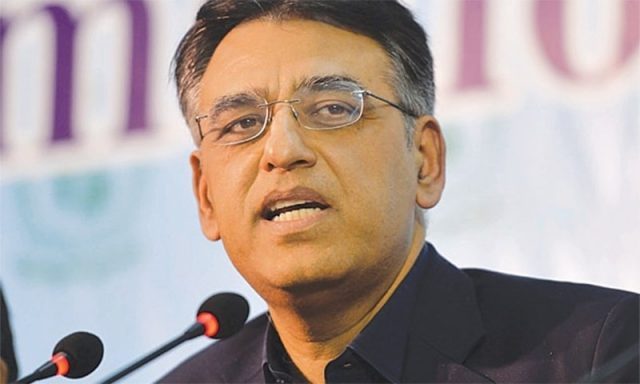News Analysis |
Pakistan Tehreek-e-Insaf (PTI) chairman Imran Khan has rejected the Prime Minister Shahid Haqqan Abbasi’s tax amnesty Scheme arguing that it provides a chance to corrupt individuals to turn their black money white. Imran Khan said that through this scheme honest taxpayers are punished. Rather than paying tribute to the current taxpayers, the government intends to treat them harshly. This scheme will only punish honesty and provide chances to corrupt crooks to whiten their ill-gotten money.
During his visit to interior Sindh, Khan kicked off membership drive from Pakistan People Party (PPP) co-chairman Asif Ali Zardari’s hometown-Nawabshah. He addressed the large number of supporters at membership camps installed at different locations of the city. Khan questioned the timing of announcing such a scheme when the government has only a month left in its current tenure.
He told the crowd that if his party came to power, it will investigate the one used this scheme to turn their black money white. On Thursday, after meeting with the Economic Advisory Council, tax reforms were announced aiming to bring the tax evaders in the tax net. Crucially under the PM’s reform package, the third point dealt with the “uUdeclared assets held locally or abroad to be declared after payment of nominal penalties. Those who avail scheme to be granted a one-time exemption from accountability laws”.
Those willing to transfer money will only be given one-time exemption from any kind of accountability. PPP has also opposed the scheme which could only pave way for corporates and other big businesses to whiten their money held abroad.
Other than the politicians and their families, everyone else can avail this scheme. If any individual has accumulated wealth and kept it abroad, that individual will only have to pay the nominal penalty. If anyone earned the undeclared wealth before June 30, 2017, locally, he or she will only have to pay 5% penalty to make it white.
Read more: Imran Khan demands a commission to inquire extra-judicial killing ordered by…
Moreover, if anyone held the money abroad and did not declare this to Pakistan government, such individuals are welcome to declare their assets abroad using the newly crafted amnesty scheme. They will only have to pay 2% of the total value of the foreign exchange. In other words, if big businesses have money hidden in any safe heavens-Panama, Virgin Island, Dubai, Switzerland or any other country are welcome to bring their money back. They will only have to pay a nominal amount to make it legal.
Fixed and liquid assets are dealt with differently. People will have to pay 5% on liquid asset-cash or bonds held abroad or locally, to declare them. But, when a fixed asset, as long as their current value/market value is higher than their acquisition cost, it can be declared under the new amnesty scheme. Moreover, if dollar account holders have purchased dollars with undeclared wealth, they can also declare them at 2% payment of the total value.
During his visit to interior Sindh, Khan kicked off membership drive from Pakistan People Party (PPP) co-chairman Asif Ali Zardari’s hometown-Nawabshah. He addressed the large number of supporters at membership camps installed at different locations of the city.
Those willing to transfer money will only be given one-time exemption from any kind of accountability. PPP has also opposed the scheme which could only pave way for corporates and other big businesses to whiten their money held abroad. However, PM gave the assurance that assets held abroad through terror financing, money laundering, and drug smuggling cannot be entertained under this scheme.
Read more: Imran Khan escapes another shoe attack in Gujrat
But, why did PM announced the scheme without the backing of parliament and Senate? Despite the fact that National Assembly Standing Committee on Finance unanimously passed a resolution that without passing through the parliament, no amnesty can be offered. Opposition parties are crying foul amid PM’s amnesty bill without the approval of the public representatives in Lower and the Upper House.
The government may be looking to prove its compliance with anti-money laundering and anti-terrorism financing laws before submitting its action plan to Financial Action Task Force (FATF), but, it could have used a better channel to do so. Working in a draconian style can never become appreciable in a democratic country.














